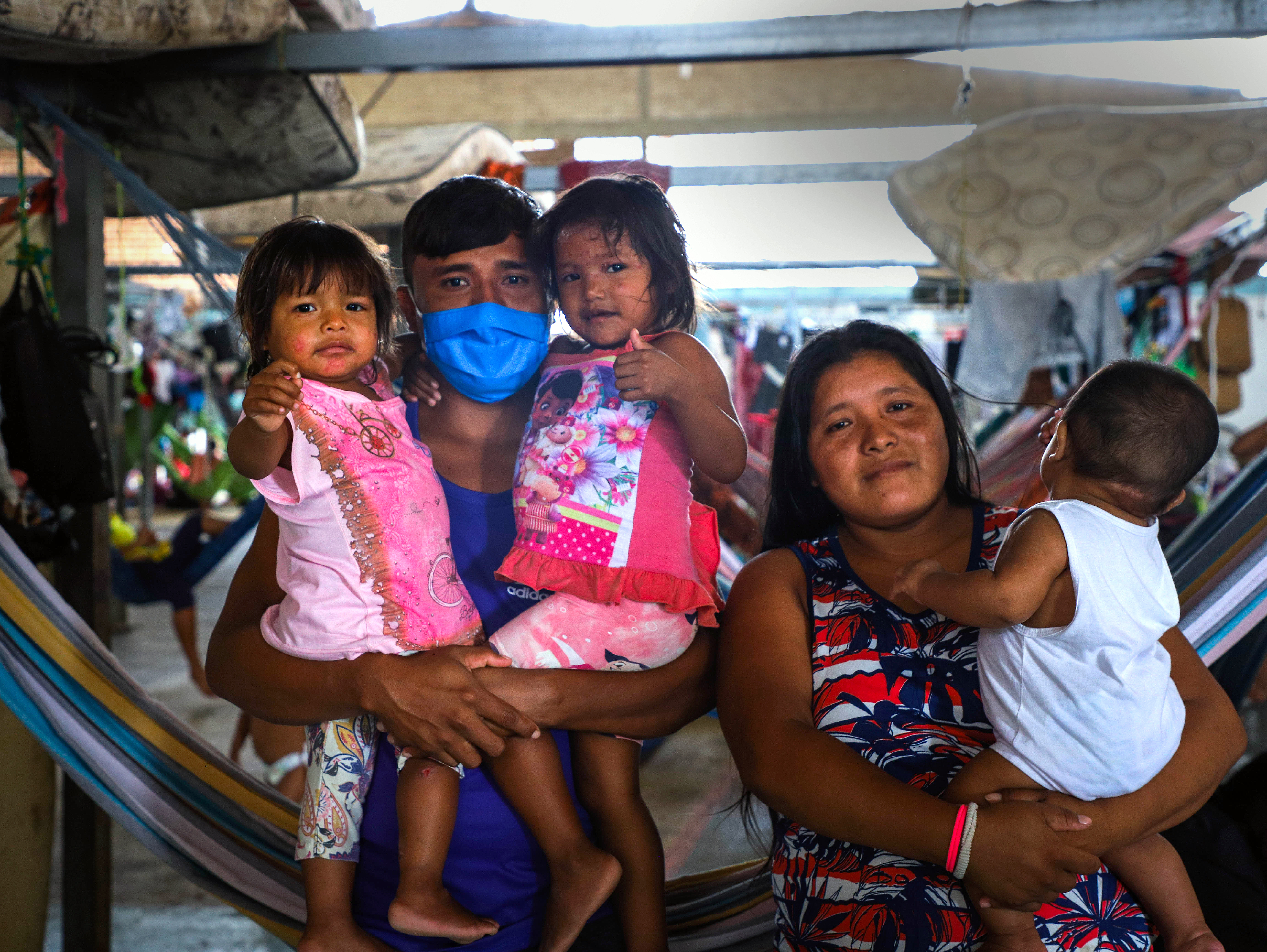Colombian indigenous culture flourishes again in Panama
Colombian indigenous culture flourishes again in Panama

VISTA ALLEGRE, Panama, May 30 (UNHCR) - A year after they fled Colombia, 11 families of the Wounaan indigenous group are beginning to feel safe again in Panama.
After months of wandering, the 48 individuals last December became the first indigenous group to be granted refugee status in Panama. They have found a home in the small Vista Allegre river settlement in the Darién Gap - a large swath of undeveloped swampland and jungle separating Panama and Colombia.
"We will always remember the day we arrived in Vista Allegre. It was half - past seven in the evening and everyone was waiting for us by the river. They had prepared a welcome feast for us," says Jose*, one of seven Wounaan leaders who had received death threats in Colombia.
Reachable only by small boats, Vista Allegre consists of a few wooden huts built on stilts, one school and a tiny shop that sells tinned food and soft drinks. Home to some 150 people before the Wounaans' arrival, the community is now going through a population boom.
There are signs of activity everywhere. The school has two new teachers, and pirogues carrying fish and bananas downriver stop frequently to sell or barter in Vista Allegre. Many of the wooden huts are shared between three or four families: local people have moved out of their own houses to make room for the newcomers.
The men are busy with building work. The UN refugee agency has trained them in carpentry skills and given them the tools and equipment to set up a workshop. The community badly needs more homes and UNHCR, along with the International Organization for Migration, is providing kits for 11 new houses, which the men will build themselves in the local style.
The refugee agency has also reached an agreement with UNICEF, the UN Children's Fund, to install a water system in the community. There is water in abundance from the rivers in the Darién, but Vista Allegre - like many other settlements - lacks any sanitation or even tanks to collect rainwater.
"We are seeing in Vista Allegre how a whole community can benefit from the arrival of refugees when everyone joins forces to help," explains José Euceda, UNHCR's representative in Panama. "The lack of housing and the strain on basic resources are very real problems. If left unaddressed, they can create tensions and jeopardize refugee integration. Everyone stands to win if these problems are dealt with jointly and as early on as possible."
The Wounaan odyssey began in April last year, when they fled their ancestral land in Colombia after an irregular armed group killed two of the community's members. They wandered for weeks across the Darién Gap, before risking the dangerous crossing by sea to reach safety in Panama.
"We had the little ones on our shoulders during the whole trip because we were scared that the waves would carry them away," recalls 22-year-old Dana*, whose son was less than two at the time.
The 11 families reached the small Panamanian port of Jaqué in May last year. But the Wounaans are river people and felt they could not thrive in a seaport. They asked to move further inside the Darién and in November the government agreed. A month later, it granted refugee status to the entire group.
"It was a landmark decision, the first time that Panama granted refugee status to an indigenous group," said Philippe Lavanchy, UNHCR's director for the Americas, who met the Wounaan group several times, both in Colombia and Panama. He added that most other Colombians in the Darién region are living under a temporary regime that imposes a number of restrictions, notably on freedom of movement.
Many of the Colombians who have sought a haven in Panama from the armed conflict in their homeland belong to indigenous groups. UNHCR has repeatedly expressed concern about the impact of forced displacement on these communities, whose culture and traditions are closely linked to the land.
In Vista Allegre, the Wounaan culture is beginning to flourish again. Dana is now selling her traditional woven handcrafts through a cooperative system UNHCR helped set up. The refugee agency has also given the community two sewing machines and runs workshops to help the women learn new skills. It is not much of an income yet for Dana, but enough to give her hope.
* Names have been changed for protection reasons
By Marie-Hélène Verney in Vista Allegre, Panama








